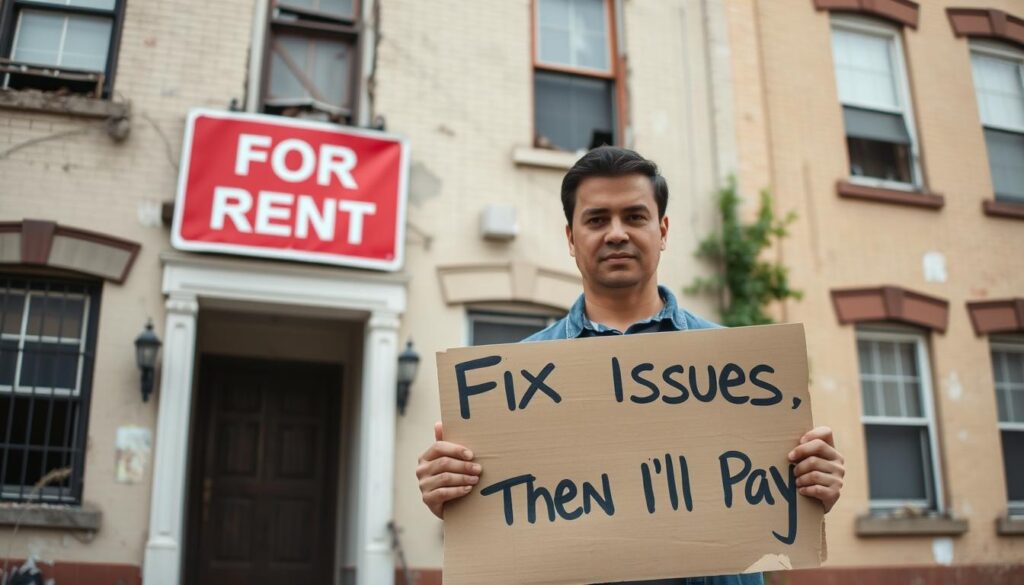Leases can be tricky things. They’re full of legalese and tiny loopholes that can cause big problems down the road. As a landlord, it’s important to be aware of these potential traps and take steps to avoid them. And as a tenant or potential tenant, it’s important to know what to watch out for so you don’t get taken advantage of. In this post, we’ll take a look at some of the most common loopholes in leases and how to avoid them.
- The “I Forgot” Loophole
As a property management company, we’ve heard every excuse in the book when it comes to tenants breaking the rules. But by far the most common response is, “I forgot.” Whether it’s forgetting to pay rent on time or causing damage to the property, tenants will often try to pass the blame off on a simple mistake. However, as any property manager knows, “forgetting” is rarely an honest mistake. In most cases, it’s simply an attempt to avoid taking responsibility for their actions. So if you’re a tenant and you’re reading this, please take note: we understand that everyone makes mistakes from time to time. But if you want to avoid getting on your property manager’s bad side, it’s important to be honest about your screw-ups. Otherwise, you might find yourself facing some serious consequences down the road.
- The “It’s Broken” Loophole
As any property owner or manager knows, tenants can be tricky. They’re always looking for ways to get out of paying their rent, and one of their favorite tricks is to claim that something is broken when it’s really not. They might say that the AC isn’t working when really it just needs to be reset, or that there’s a hole in the wall when really they just put their fist through it after a fight with their significant other. While some of these claims may be legitimate, others are simply tenants trying to get out of paying for damages they caused themselves. To avoid this loophole, be sure to conduct regular inspections of your property and document any pre-existing damages. That way, you’ll have evidence to back you up if a tenant tries to pull a fast one. And if you don’t have the time or energy to conduct inspections yourself, you can always hire a property management company to do it for you. Either way, you’ll be glad you took the extra step to protect yourself from tenant shenanigans.
- The “I Didn’t Do It” Loophole
Ah, the old “I didn’t do it” routine. This is a favorite among tenants who like to play games with their landlords. They’ll damage something in the apartment, then deny it when confronted. This one can be tricky to prove, so it’s important to have written documentation—like a police report or statement from a witness—to back up your case. If you don’t have concrete evidence that the tenant is responsible for the damage, you may be stuck footing the bill yourself. That’s why it’s always a good idea to have property management insurance in place. That way, if a tenant damages your property, you can file a claim and get the repairs covered without having to pay out of pocket. And of course, if you suspect that a tenant is damage-prone, you can always require them to pay rent in advance or purchase renter’s insurance. Either way, you can rest assured that your property is protected.
- The “Late Fees Are Evil” Loophole
As a property owner or manager, you’re probably all too familiar with the age-old excuses tenants give for not paying rent on time. “I forgot,” “I didn’t have enough money,” or “I didn’t get the reminder” are just a few of the classics. However, one of the most frustrating excuses is when tenants try to avoid paying late fees by claiming that they never received payment reminders or that the late fees are unfair and unreasonable. To avoid this type of issue altogether, be sure to clearly state in your lease how late fees will be assessed (per day/per week/etc.) and how much they will be (a percentage of rent/a flat fee/etc.). That way, there will be no confusion—and no room for debate—if a tenant falls behind on rent. In addition, consider using a property management service that can handle rent collection and other property-related tasks on your behalf. With expert help, you can relax and enjoy the fruits of your investment without having to worry about late payments—or late-paying tenants.
- The “Get Out Of Jail Free” Card Loophole
As any property owner knows, one of the most important—and difficult—parts of being a landlord is dealing with tenants. While most tenants are honest, reliable people who pay their rent on time and take good care of your property, there are always a few bad apples who try to take advantage of the system. In some cases, tenants will try to get out of their lease early by claiming that the property is uninhabitable or that they’ve been harassed by other tenants or neighbors. These claims can often be difficult—and expensive—to prove, so it’s important to have tight security and well-documented communication with your tenants at all times. If a tenant does manage to get out of their lease early due to one of these claims, you could be stuck taking legal action against them (and spending a lot of money in the process). To avoid this nightmare scenario, screen your tenants carefully and keep meticulous records throughout their tenancy. By following these simple tips, you can minimize the risk of having to deal with troublesome tenants and expensive legal battles.
- The “My Dog Ate My Lease” Loophole
This one might seem far-fetched, but it’s actually quite common. Tenants will sometimes try to get out of their leases by claiming that the lease was destroyed or damaged, either accidentally or intentionally. For example, a tenant may claim that the lease was eaten by their pet or accidentally thrown out with the trash. To prevent this type of loophole from occurring, make sure that you have a copy of the lease stored in a secure place (preferably digitally) and that it is signed by all parties involved. That way, if a tenant does try to get out of their lease by claiming that the document was destroyed or damaged, you will have proof that they agreed to the terms of the lease and can take appropriate legal action.
- The “I Didn’t Sign Anything” Loophole
Finally, some tenants will try to get out of their lease by claiming that they never signed it in the first place. To avoid this type of loophole, make sure to have your tenants sign the lease in front of a witness, if possible. This will ensure that both parties are held accountable for the lease agreement and that either party cannot back out of it without consequence. Additionally, make sure to keep a copy of the signed lease for your records. This will provide proof that the tenant did, in fact, sign the document and agreed to the terms of the lease. By taking these simple precautions, you can protect yourself from any potential legal battles down the road.
- The “I Didn’t Read It” Loophole
This is perhaps one of the most common—and dangerous—loopholes in a lease agreement. Tenants may try to get out of their lease by claiming that they didn’t understand or read the fine print of the agreement. To protect yourself from this loophole, make sure that your lease is written clearly and concisely. Avoid using legal jargon and ensure that all terms are explicitly stated. Additionally, it’s important to make sure that your tenants fully understand the agreement before signing. Have them read through the document carefully and explain any complex topics before they sign. This will ensure that the tenant is well-informed and the lease agreement is fully understood by all parties involved.
- The “Unfair Terms” Loophole
Finally, tenants may try to exploit any unfair terms in the lease agreement. To prevent this from happening, make sure that all of the terms in your lease are fair and reasonable. Read through the agreement carefully and ensure that it is legally enforceable. Additionally, pay close attention to any local or state laws that may affect the terms of your lease. By taking these precautions, you can make sure that your lease is fair to both you and your tenants, protecting you from any potential legal issues down the line.
Although lease agreements can be complex and difficult to understand, both landlords and tenants must pay close attention to the details. By understanding these five common lease loopholes, you can save yourself a lot of time, energy, and money down the road. So take some time to review your lease agreement today and make sure you’re protected against any potential problems tomorrow. Happy leasing!
Tags:
how to invest in real estate,tax loopholes the rich dont want you to know,tax loopholes,loopholes to exploit,how to avoid taxes legally,how to invest in property,how to remove a bad tenant,how to retire in 10 year,top loopholes,how do i win in eviction court,how to invest,loopholes,residential lease agreement






